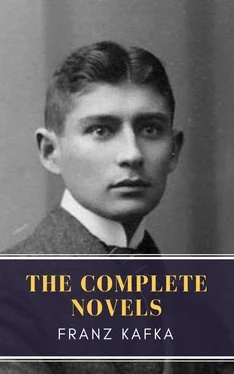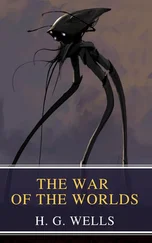Array MyBooks Classics - Franz Kafka - The Complete Novels
Здесь есть возможность читать онлайн «Array MyBooks Classics - Franz Kafka - The Complete Novels» — ознакомительный отрывок электронной книги совершенно бесплатно, а после прочтения отрывка купить полную версию. В некоторых случаях можно слушать аудио, скачать через торрент в формате fb2 и присутствует краткое содержание. Жанр: unrecognised, на английском языке. Описание произведения, (предисловие) а так же отзывы посетителей доступны на портале библиотеки ЛибКат.
- Название:Franz Kafka: The Complete Novels
- Автор:
- Жанр:
- Год:неизвестен
- ISBN:нет данных
- Рейтинг книги:5 / 5. Голосов: 1
-
Избранное:Добавить в избранное
- Отзывы:
-
Ваша оценка:
- 100
- 1
- 2
- 3
- 4
- 5
Franz Kafka: The Complete Novels: краткое содержание, описание и аннотация
Предлагаем к чтению аннотацию, описание, краткое содержание или предисловие (зависит от того, что написал сам автор книги «Franz Kafka: The Complete Novels»). Если вы не нашли необходимую информацию о книге — напишите в комментариях, мы постараемся отыскать её.
Unhappiness
The Judgment
Before the Law
The Metamorphosis
A Report to an Academy
Jackals and Arabs
A Country Doctor
In the Penal Colony
A Hunger Artist
The Trial
The Castle
Amerika
A Little Fable
The Great Wall of China
The Hunter Gracchus
The Burrow
Franz Kafka: The Complete Novels — читать онлайн ознакомительный отрывок
Ниже представлен текст книги, разбитый по страницам. Система сохранения места последней прочитанной страницы, позволяет с удобством читать онлайн бесплатно книгу «Franz Kafka: The Complete Novels», без необходимости каждый раз заново искать на чём Вы остановились. Поставьте закладку, и сможете в любой момент перейти на страницу, на которой закончили чтение.
Интервал:
Закладка:
Until then I had had so many ways out of everything, and now I had none. I was pinned down. Had I been nailed down, my right to free movement would not have been lessened. Why so? Scratch your flesh raw between your toes, but you won’t find the answer. Press yourself against the bar behind you till it nearly cuts you in two, you won’t find the answer. I had no way out but I had to devise one, for without it I could not live. All the time facing that locker — I should certainly have perished. Yet as far as Hagenbeck was concerned, the place for apes was in front of a locker — well then, I had to stop being an ape. A fine, clear train of thought, which I must have constructed somehow with my belly, since apes think with their bellies.
I fear that perhaps you do not quite understand what I mean by “way out.” I use the expression in its fullest and most popular sense — I deliberately do not use the word “freedom.” I do not mean the spacious feeling of freedom on all sides. As an ape, perhaps, I knew that, and I have met men who yearn for it. But for my part I desired such freedom neither then nor now. In passing: may I say that all too often men are betrayed by the word freedom. And as freedom is counted among the most sublime feelings, so the corresponding disillusionment can be also sublime. In variety theaters I have often watched, before my turn came on, a couple of acrobats performing on trapezes high in the roof. They swung themselves, they rocked to and fro, they sprang into the air, they floated into each other’s arms, one hung by the hair from the teeth of the other. “And that too is human freedom,” I thought, “self-controlled movement.” What a mockery of holy Mother Nature! Were the apes to see such a spectacle, no theater walls could stand the shock of their laughter.
No, freedom was not what I wanted. Only a way out; right or left, or in any direction; I made no other demand; even should the way out prove to be an illusion; the demand was a small one, the disappointment could be no bigger. To get out somewhere, to get out! Only not to stay motionless with raised arms, crushed against a wooden wall.
Today I can see it clearly; without the most profound inward calm I could never have found my way out. And indeed perhaps I owe all that I have become to the calm that settled within me after my first few days in the ship. And again for that calmness it vas the ship’s crew I had to thank.
They were good creatures, in spite of everything. I find it still pleasant to remember the sound of their heavy footfalls which used to echo through my half-dreaming head. They had a habit of doing everything as slowly as possible. If one of them wanted to rub his eyes, he lifted a hand as if it were a drooping weight. Their jests were coarse, but hearty. Their laughter had always a gruff bark in it that sounded dangerous but meant nothing. They always had something in their mouths to spit out and did not care where they spat it. They always grumbled that they got fleas from me; yet they were not seriously angry about it, they knew that my fur fostered fleas, and that fleas jump; it was a simple matter of fact to them. When they were off duty some of them often used to sit down in a semicircle around me; they hardly spoke but only grunted to each other; smoked their pipes, stretched out on lockers; smacked their knees as soon as I made one slightest movement; and now and then one of them would take a stick and tickle me where I liked being tickled. If I were to be invited today to take a cruise on that ship I should certainly refuse the invitation, but just as certainly the memories I could recall between its decks would not all be hateful.
The calmness I acquired among these people kept me above all from trying to escape. As I look back now, it seems to me I must have had at least an inkling that I had to find a way out or die, but that my way out could not be reached through flight. I cannot tell now whether escape was possible, but I believe it must have been; for an ape it must always be possible. With my teeth as they are today I have to be careful even in simply cracking nuts, but at that time I could certainly have managed by degrees to bite through the lock of my cage. I did not do it. What good would it have done me? As soon as I had poked out my head I should have been caught again and put in a worse cage; or I might have slipped among the other animals without being noticed, among the pythons, say, who were opposite me, and so breathed out my life in their embrace; or supposing I had actually succeeded in sneaking out as far as the deck and leaping overboard I should have rocked for a little on the deep sea and then been drowned. Desperate remedies. I did not think it out in this human way, but under the influence of my surroundings I acted as if I had thought it out.
I did not think things out; but I observed everything quietly. I watched these men go to and fro, always the same faces, the same movements, often it seemed to me there was only the same man. So this man or these men walked about unimpeded. A lofty goal faintly dawned before me. No one promised me that if I became like them the bars of my cage would be taken away. Such promises for apparently impossible contingencies are not given. But if one achieves the impossible, the promises appear later retrospectively precisely where one had looked in vain for them before. Now, these men in themselves had no great attraction for me. Had I been devoted to the aforementioned idea of freedom, I should certainly have preferred the deep sea to the way out that suggested itself in the heavy faces of these men. At any rate, I watched them for a long time before I even thought of such things, indeed, it was only the mass weight of my observations that impelled me in the right direction.
It was so easy to imitate these people. I learned to spit in the very first days. We used to spit in each other’s faces; the only difference was that I licked my face clean afterwards and they did not. I could soon smoke a pipe like an old hand; and if I also pressed my thumb into the bowl of the pipe, a roar of appreciation went up between decks; only it took me a very long time to understand the difference between a full pipe and an empty one.
My worst trouble came from the schnapps bottle. The smell of it revolted me; I forced myself to it as best I could; but it took weeks for me to master my repulsion. This inward conflict, strangely enough, was taken more seriously by the crew than anything else about me. I cannot distinguish the men from each other in my recollection, but there was one of them who came again and again, alone or with friends, by day, by night, at all kinds of hours; he would post himself before me with the bottle and give me instructions. He could not understand me, he wanted to solve the enigma of my being. He would slowly uncork the bottle and then look at me to see if I had followed him; I admit that I always watched him with wildly eager, too eager attention; such a student of humankind no human teacher ever found on earth. After the bottle was uncorked he lifted it to his mouth; I followed it with my eyes right up to his jaws; he would nod, pleased with me, and set the bottle to his lips; I, enchanted with my gradual enlightenment, squealed and scratched myself comprehensively wherever scratching was called for; he rejoiced, tilted the bottle, and took a drink; I, impatient and desperate to emulate him, befouled myself in my cage, which again gave him great satisfaction; and then, holding the bottle at arm’s length and bringing it up with a swing, he would empty it at one draught, leaning back at an exaggerated angle for my better instruction. I, exhausted by too much effort, could follow him no farther and hung limply to the bars, while he ended his theoretical exposition by rubbing his belly and grinning.
After theory came practice. Was I not already quite exhausted by my theoretical instruction? Indeed I was; utterly exhausted. That was part of my destiny. And yet I would take hold of the proffered bottle as well as I was able; uncork it, trembling; this successful action would gradually inspire me with new energy; I would lift the bottle, already following my original model almost exactly; put it to my lips and — and then throw it down in disgust, utter disgust, although it was empty and filled only with the smell of the spirit, throw it down on the floor in disgust. To the sorrow of my teacher, to the greater sorrow of myself; neither of us being really comforted by the fact that I did not forget, even though I had thrown away the bottle, to rub my belly most admirably and to grin.
Читать дальшеИнтервал:
Закладка:
Похожие книги на «Franz Kafka: The Complete Novels»
Представляем Вашему вниманию похожие книги на «Franz Kafka: The Complete Novels» списком для выбора. Мы отобрали схожую по названию и смыслу литературу в надежде предоставить читателям больше вариантов отыскать новые, интересные, ещё непрочитанные произведения.
Обсуждение, отзывы о книге «Franz Kafka: The Complete Novels» и просто собственные мнения читателей. Оставьте ваши комментарии, напишите, что Вы думаете о произведении, его смысле или главных героях. Укажите что конкретно понравилось, а что нет, и почему Вы так считаете.












